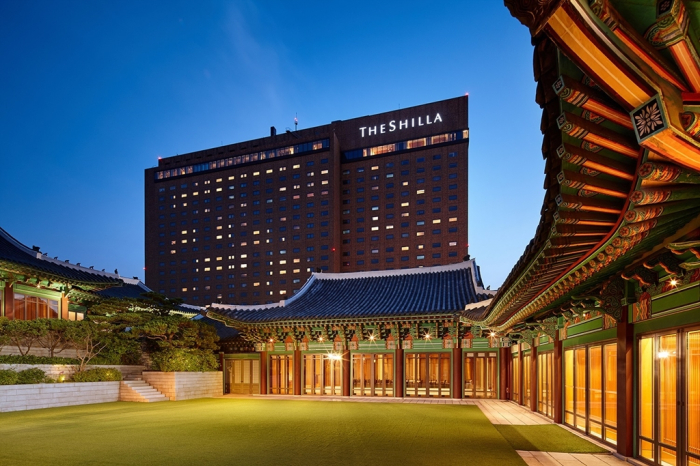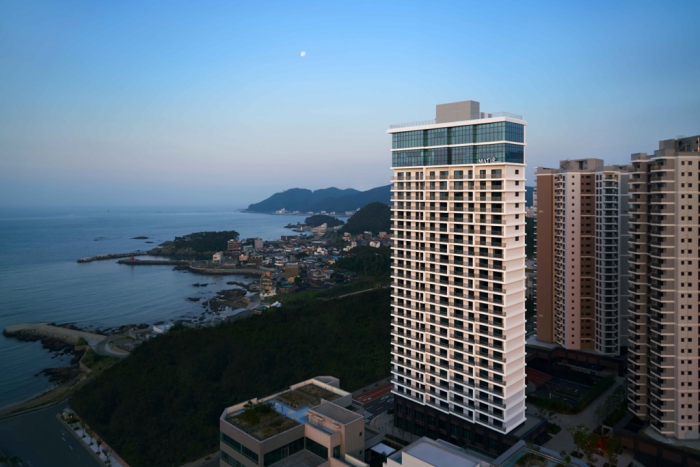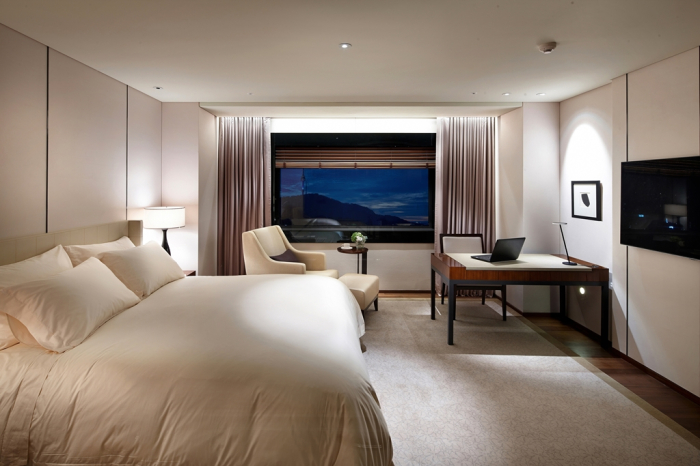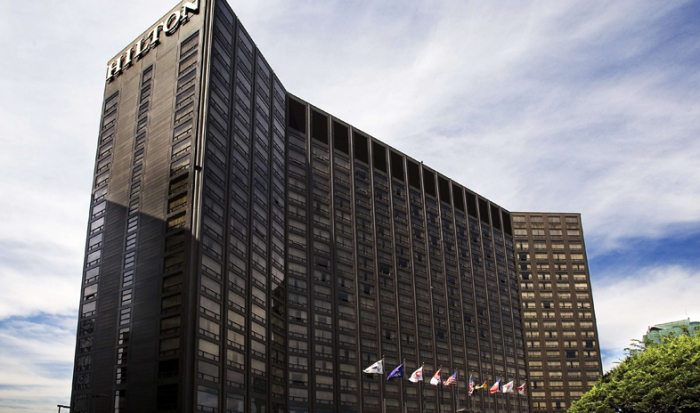
The gap between Seoul’s hotel investment market and that of regional cities is widening, as global luxury brands flock to the capital while provincial properties struggle to find buyers.
Rising foreign tourist arrivals have fueled record demand for hotel assets in downtown Seoul, pushing prices to fresh highs.
By contrast, attempted sales of properties in Busan, Jeju and other regional destinations are collapsing, forcing owners into refinancing cycles and delayed exits, analysts said.
According to investment banking sources said on Friday, KB Real Estate Trust recently scrapped plans to sell the Busan Matie Osiria Hotel, located in the city’s coastal Osiria resort complex, after failing to attract bidders.

The 200-room property, completed in 2022, was acquired for 84 billion won ($60.3 million) through a real estate investment trust, in which Hanwha Hotels & Resorts Co. holds a 50% stake. Other major stakeholders include Eugene Investment & Securities Co., SK Securities Co. and KB Securities Co.
With no buyers forthcoming, the trust extended its maturity by two years.
TRADITONAL STRONGHOLDS ALSO STRUGGLING
Even traditionally popular destinations are struggling.
A recent auction of the four-star 407-room Shilla Stay Haeundae by IGIS Asset Management Co. drew no interest at all, despite its prime beachfront location.

IGIS has instead turned to a 230 billion won refinancing package.
The sale of Shilla Stay Dongtan, which Mirae Asset Global Investments Co. is selling, fell through as BlueCove Investment Co., which was selected as the preferred bidder, failed to attract investors.
Other assets, including Shilla Stay Jeju, Parnas Hotel Jeju and L7 Haeundae, have seen sales postponed or abandoned altogether after investors walked away.
RITZ-CARLTON, MANDARIN ORIENTAL, AMAN IN SEOUL
By contrast, bidding for luxury hotels in Seoul is heating up among international hotel operators.

The Ritz-Carlton is set to return to Korea in 2031 as the anchor of IGIS’ redevelopment of the area at the foot of Seoul’s Mt. Namsan.
In April, IGIS picked The Ritz-Carlton as the preferred hotel brand for its ambitious mixed-use property development project on the site of the former Millennium Hilton Seoul.
The construction is part of the “Iota Seoul,” a landmark property redevelopment project opposite Seoul Station.
Mandarin Oriental has been confirmed as the operator of a hotel near Seoul Station, which is under development by Hanwha Group.
Ultra-luxury brand Aman plans to open a hotel under its brand in Cheongdam-dong, southern Seoul, in 2030.

According to Hana Securities Co., the average daily rate for hotels in Seoul rose to 194,000 won last year from 145,000 won in 2022, while five-star properties climbed to a record 346,000 won from 288,800 won over the same period.
With foreign arrivals in the first half of this year surpassing pre-pandemic levels at 8.83 million, analysts expect annual room rates to grow by 10% over the next two years.
“Provincial hotels suffer from highly seasonal demand, making it hard to secure stable cash flow,” said an asset management executive. “The liquidity premium for Seoul properties will only widen, deepening the structural polarization of the hotel investment market in Korea.”
By Gyeong-Jin Min
min@hankyung.com
In-Soo Nam edited this article.















